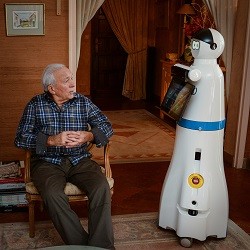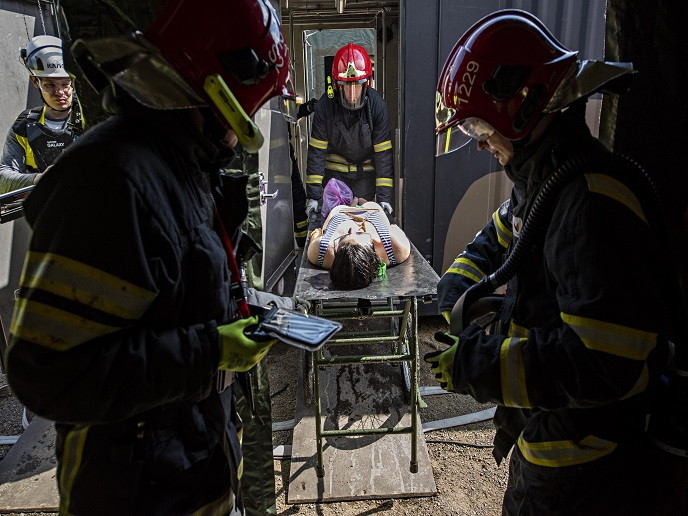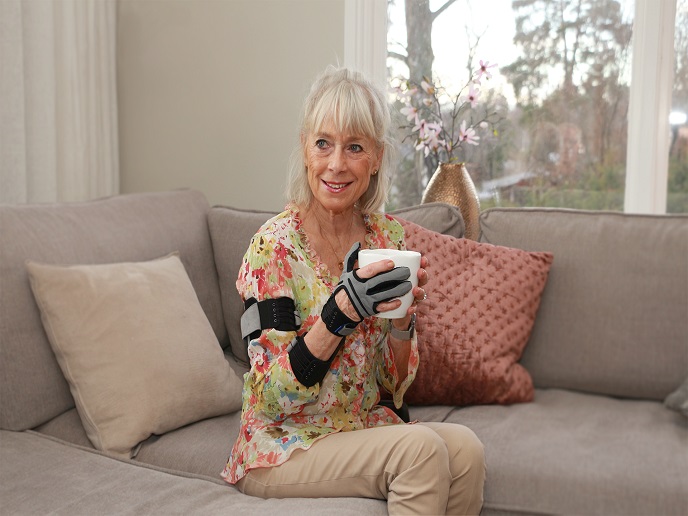Robotic solutions to give dementia patients better quality of life
In the absence of a cure, solutions such as MARIO, the Kompaï-2 robot currently being developed, are vital to improving the quality of life of people with dementia. The number of people living with this disease worldwide is estimated at 44 million, set to almost double by 2030 and more than triple by 2050, according to Alzheimer's Disease International. Building on success Launched in February 2015, the three year MARIO project builds upon the success of the DOMEO project, the first ever project to bring assistant robots into real homes with real people for a period of more than a year. Robosoft, the coordinator of DOMEO, is now a partner in MARIO and is responsible for achieving functional and system-related improvements of the new version of the Kompaï robot. ‘Out current work is very much informed and based on the work conducted in the DOMEO project,’ explains Meftah Ghrissi from project partner Robosoft. ‘To put it simply, without DOMEO there would be no Kompaï-2 for the MARIO project. Indeed, the legacy of DOMEO is relevant not only for the MARIO project but for an entire ‘class’ or ‘generation’ of projects that are now underway or planned in the future.’ Several aspects of DOMEO will now be expanded upon through MARIO’s research agenda. These include verbal interactions with the user, along with Human Robot Interaction to support cognitive and memory assistance involving semantics. ‘Until today Kompaï was using a fixed dictionary for voice recognition,’ says project coordinator Dympna Casey. ‘Our aim is that the MARIO project takes a step forward and exploits natural language processing. In this respect, we hope that MARIO will leave a legacy to the field of robotics comparable to that of DOMEO, by being the first project that places semantics at the centre of any new future similar robot applications.’ Promising progress As the project reaches its halfway point, the work carried out with end users so far has enabled the team to equip MARIO with specific psychosocial applications designed to meet patient needs. ‘For example, the Connect My Hobbies module, which consists of My Music, My News, and My Games applications, have been developed and can now be tailored to the needs of end users,’ says Casey. ‘These may seem like simple applications, but they actually promote autonomy and empower people with dementia, who can select what they want to watch or listen to and decide when they want to do so, without having to wait for a busy nurse or caregiver.’ In addition, the team is equipping MARIO with the capability of undertaking the Comprehensive Geriatric Assessment (CGA), something that would normally take a health care professional around 30 minutes per patient to complete. Further work on MARIO over the next 18 months will include adding in new applications and modules such as Connect My Community and My Social Networks. The MARIO robot is due to arrive at three pilot sites – Ireland, UK and Italy – at the end of August 2016, where it will spend more than 12 months being tested by end users including people with dementia and caregivers. ‘As a result of engaging with MARIO we believe the loneliness and isolation experienced by many people with dementia will be reduced, and their autonomy and their quality of life improved,’ says Casey. ‘We also believe that through undertaking the CGA, MARIO will reduce the burden of care on caregivers as they will have more time to spend on other meaningful tasks and interacting with people with dementia.’







